Stuart Forster has talked with people around the world to put together a post with views on the coronavirus’s global impact.
Disclosure: Some of the links below and banners are affiliate links, meaning, at no additional cost to you, I will earn a commission if you click through and make a purchase.
The coronavirus pandemic is global. The first cases of COVID-19 infection were reported in Wuhan, China, late in 2019. Infections have subsequently been recorded in 210 of the world’s countries and territories.
This post does not attempt to chart all the measures put in place to halt the spread of the virus in all the world’s countries. Nor does it list the number of infections or deaths. That task would be enormous and ever-changing.
Views on the coronavirus’s global impact
Instead, my goal is to capture a snapshot, in mid-April 2020, of how measures being taken to slow the spread of COVID-19 are impacting some of the people that I know.
The respondents are scattered across the planet, including Australia and Zimbabwe, so I initially considered a global A to Z of the coronavirus’s impact as the title before settling on views on the coronavirus’s global impact.
People discuss what’s happening where they live and how measures to combat the coronavirus are affecting their lives. They express concerns as well as hopes. This is a hard time for many people, including some of those who share their experiences and observations in this post.
Thousands of people have died. Measures being taken to slow transmission of the coronavirus are detrimentally impacting economies around the world. Yet until a vaccine to COVID-19 is discovered and widely available we have little choice but to endure changes to normality.
Reading this post, you may be struck by how similar people are, regardless of ethnicity, nationality and religion.
If you’d like to share your own experiences, please feel free to write a note in the comments field at the bottom of this post.
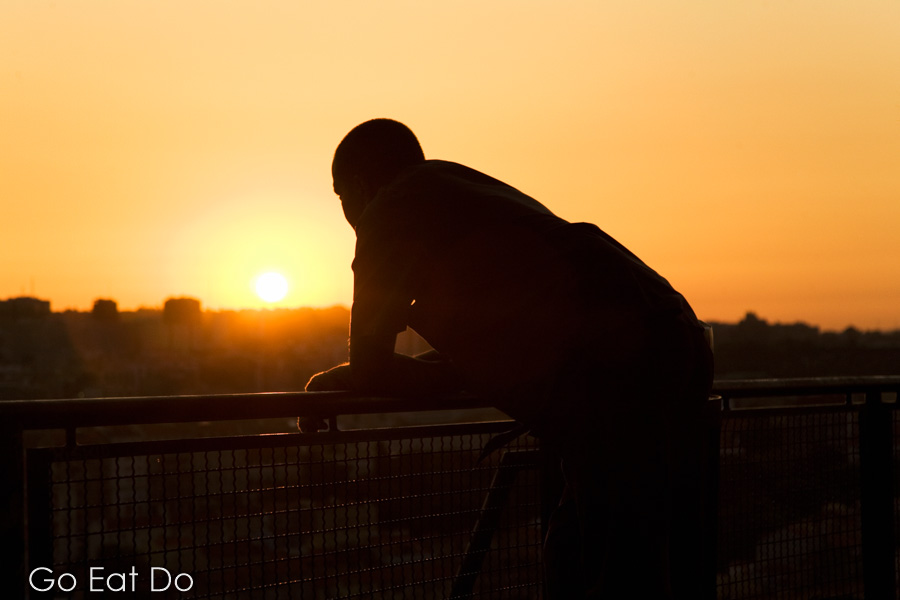
A is for Australia
“The country has been put into lockdown, with the second period of four weeks just begun,” says Jane Fitzpatrick of the situation in Melbourne, Australia, where details of regulations vary according to the state.
“Lockdown means staying at home. For kids, that means no school, no sport and no getting together at the park. For adults it means working from home if you can,” explains Jane, who is finding it tough that gyms are shut and there’s no basketball. Once the pandemic’s threat subsides, she looks forward to coaching and watching kids’ basketball plus getting her two children back to school.
“With less people out on the road, it has been a great time to go out riding our bikes with the kids and letting them ride on the road without the fear of someone running them down. Also, the kids are having a great time playing out on the side roads skateboarding, rollerblading and scooting. Stirling, who is eight years old, has become really adventurous on his scooter and skateboard,” says Jane of the unexpected advantages of the lockdown.
People can participate in activities outdoors such as walking, running and cycling in pairs, and are free to exercise as many times a day as they like.

Social isolation Down Under
“Social isolation is in place, so you can’t stand closer than 1.5 metres to anyone outside of your immediate household. You can’t gather in groups larger than five,” says Jane, adding that home gatherings with friends are not permitted. Catching up online is not something she enjoys.
“Doing the grocery shopping, some supermarkets require you to wait in a line outside. It all depends on the size of the supermarket,” she adds.
“Going out and about in your car for unnecessary things is not allowed and people are being fined, although what’s necessary and what isn’t is not particularly clear.”
Australia’s borders have been closed, something Jane believes should have happened sooner. “Any nationals coming back into the country need to go into forced isolation, for two weeks, at a designated hotel. Internal borders have also been closed, so you can travel too far; if you do cross a border then you have to go into isolation.”
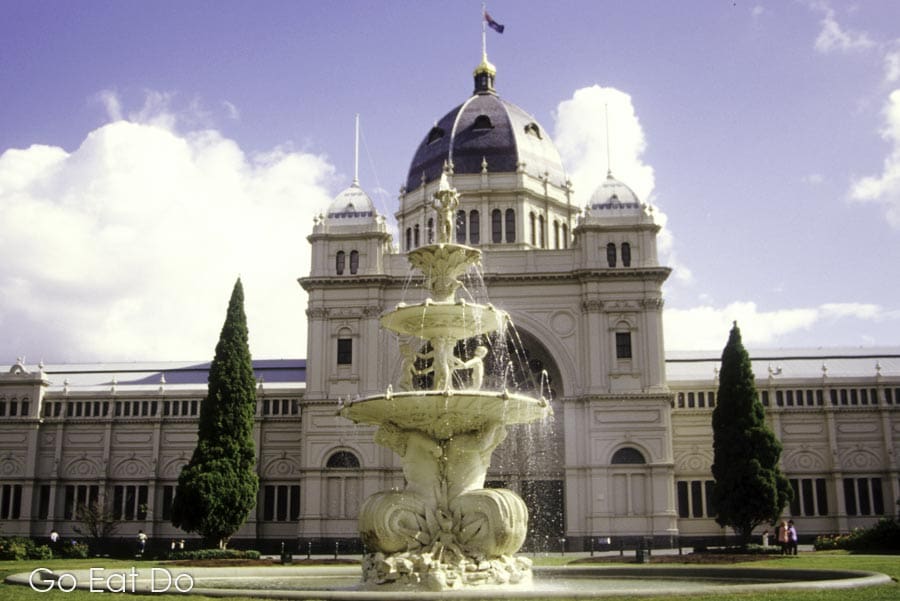
A perspective from Canada
“Everyone in Nova Scotia is under a voluntary shelter in place order, “I would say, for the most part, the majority of the population seems to be following this,” says Alain Bossé, who appears on television as The Kilted Chef.
“All non-essential businesses have closed. Those that are open have restricted hours. For the most part, the prime minister, premieres and health officials seem happy with our numbers overall; at this point, we haven’t seen any rapid increase, although they do go up daily. We are continuously warned that we haven’t peaked yet,” says Alain, who regularly travels the world demonstrating how to cook seafood caught in Canadian waters. However, all non-essential travel has been put on ice.
“Residents who return to our province, even from the neighbouring province, have to self-quarantine, by law, for 14 days. We are all discouraged from visiting family, which was difficult over the Easter weekend. Groups numbering more than five people are not permitted. If you’re travelling in a vehicle with people who do not live in your home, you are restricted to two. Charges are being laid daily for those who do not comply,” he explains.
Despite the lockdown, Canadians are being encouraged to exercise locally. “We have a lot of beautiful trails and if you can walk to them you are allowed to use them…All public beaches and parks have been closed,” observes Alain.
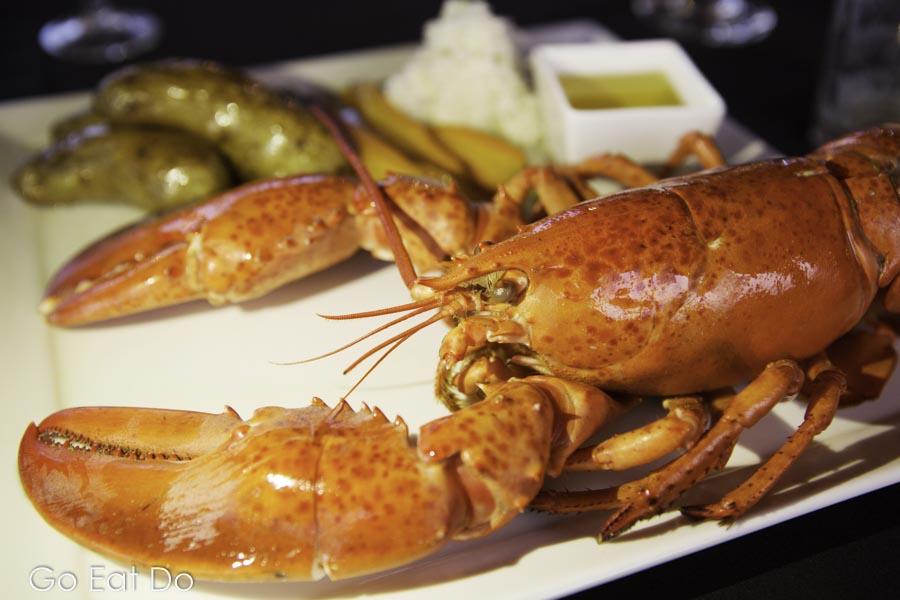
People have become serious
At this time of year, he’d normally be cooking at trade shows. “From an economic standpoint it’s difficult when, all of a sudden, you find yourself with no work, but, more than that, I’m missing the social aspect. This is the time of year when I see people that I only see once every 12 months; it’s a chance to re-establish connections. I also miss the sense of camaraderie that exists in the world. There’s not as much laughter; people have become very serious. People are scared and that’s hard to see,” he says about the coronavirus crisis.
Yet every cloud has a silver lining. Alain has been heartened to see people looking out for neighbours. Yet he looks forward to being with people and dining out when it is safe to do so.

The Kilted Chef cookery show
“Being a person who is not very good at being idle, I have started doing a daily cooking show on my Facebook page. We go live at 3.00 pm Atlantic Time [7.00 pm British Summer Time] every day for one hour. We are not preaching to people. We are not trying to teach them techniques that they will never use in their own homes. We recognize that these are people just like us who need a break from the daily bombardment of news, most of it sad. So we’ve geared this to people with varied cooking skills who are trying to make meals from limited pantries,” says Alain, outlining the concept.
“Each day we put together a dinner using what we have in the fridge — sometimes the green onions are wilted, sometimes the steak has been sitting in there a bit longer than we would like — but this is our reality now so we’re working with it and the response has been overwhelmingly positive,” he says of the show you can view on The Kilted Chef.
An angle from Egypt
“The tourism sector, which Egypt counts very much on for its economy, is 95 per cent down. The travel agents, cruises and hotels are shut down,” says Hany Tawfik, who lives in Alexandria with his wife.
“We’ve started taking a sunset walk by Alexandria’s Mediterranean coast, which we never did before. Our club is shut and swimming pools are closed, so walking by the sea is a way of getting exercise,” says Hany, who operates Alex City Travel and, in different circumstances, would be guiding tourists to attractions such as the Great Pyramids of Giza.
Around half of the country’s labour force is being paid in full thanks to measures instigated by the Egyptian government.
Beaches, parks and gardens are closed to the public. So too are gathering places including coffee shops, restaurants, shopping malls and sports clubs. Those measures have been in place for over a month.
“We have a curfew from 8.00 pm until 6.00 am the next morning,” says Hany of the situation in Egypt. “The media is discouraging people from visiting each other.”
The coronavirus means Hany and his wife are unable to visit their daughter, who lives in Australia.
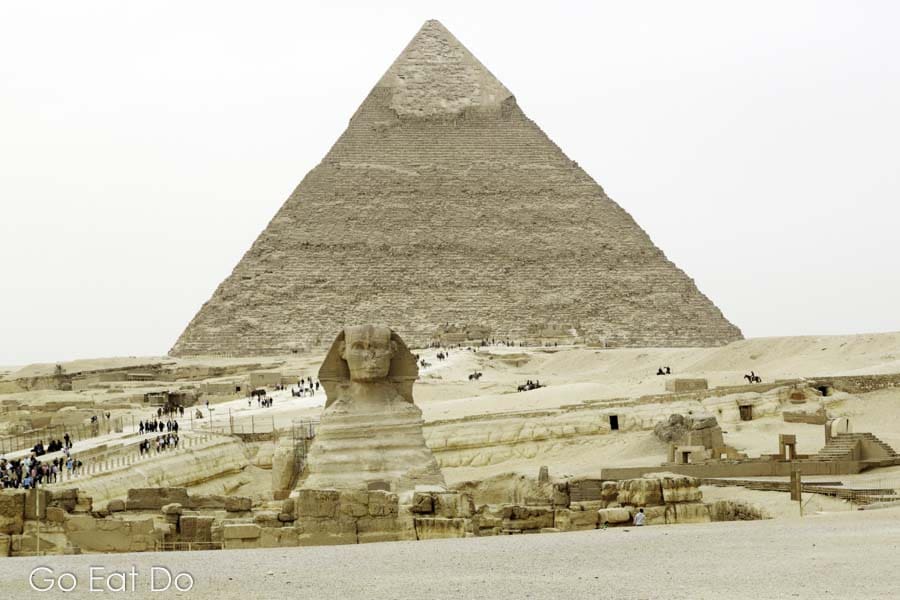
Observations from El Salvador
A quarantine was declared on 13 March in El Salvador, explains tour guide Eduardo Arriaza Siliezar, whose work has been impacted detrimentally.
“The tourism industry was the first affected by the closing of our borders. I had four months of tours already scheduled. Those from March to June are cancelled, so no income for four months and no insurance to cover my expenses. That’s the case for every freelance or in casual work,” he says of the coronavirus’s immediate impact. He’s also unable to scout out locations for future tours or attend conferences.
“No one was allowed into the country without going into a shelter for 30 days. The country came almost to a complete stop except for supermarkets, gas stations, pharmacies and the transport of groceries between Honduras and Guatemala; we depend on them for vegetables,” he explains.
Eduardo is now spending time cultivating vegetables in his garden, cooking recipes he learnt attending classes in California and reading books that have long stood on his bookshelves wrapped in cellophane.
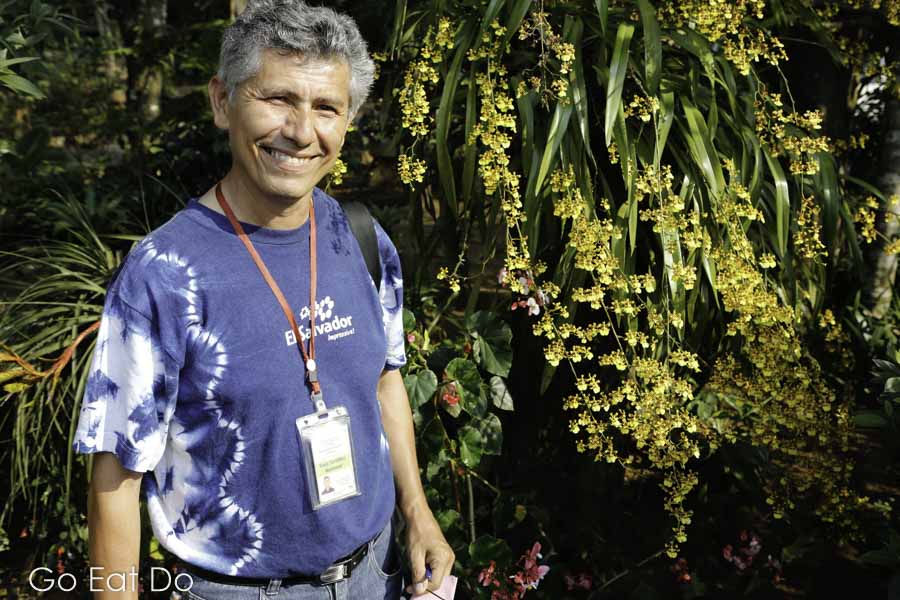
Working from home
“By a decree, companies must pay their workers, even of they aren’t working — some are working from home,” he adds of the situation in El Salvador.
“Starting this past Monday [13 April], only one person is allowed in a car and must wear a mask. But you have to have a reason to leave home,” says Eduardo. Those reasons include work in essential sectors or shopping. “We print a [permission] paper with the names of family members who can go out. This cannot be done every day.”
“It will take months but I’m still willing to do the same job, the one I love most, being an ambassador within the country’s boundaries, showing beautiful places and highlighting environmental issues,” he says of the future.
(I spent time on the road with Eduardo in El Salvador and would happily do so again.)
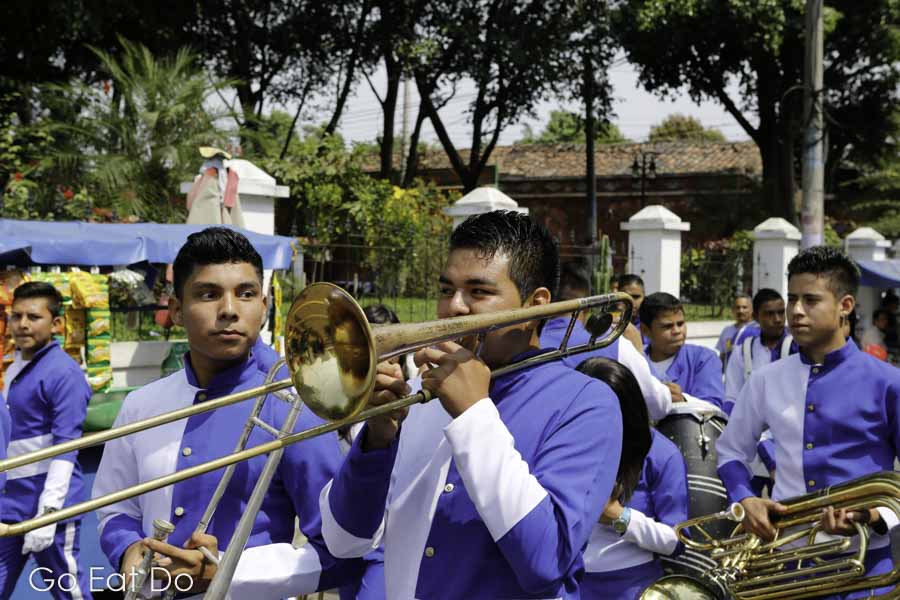
Viewpoints from France
“In France, everything seems to have stopped since 16 March — pretty much like everywhere else in the world,” says Benoît Diéval who lives with his wife and two young children in St Omer, a small town in northern France. The youngsters keep him busy during the daytime meaning he works into the night.
“All the shops that are not selling essential items are closed. Those that remain open are supermarkets, boulangeries, butchers, cheese shops, wine shops, farm shops, plus stores selling tobacco and e-cigarettes,” he says.
“Home delivery and pre-ordering have grown a lot,” observes Benoît. “There’s even a local book shop that does home delivery around Saint-Omer.”
“Not going out with the kids is tough,” he cedes. “It’s nearly impossible for the kids to go out without touching anything and risking contamination.”
Benoît reveals there was a telling development when his family went for a walk, beyond their own backyard, three-and-a-half weeks after the beginning of the lockdown: “My youngest, seven-months-old, is now scared of lorries and motorbikes; which most kids love. He has lost the habit of hearing such noise and seeing big things go fast. He was crying in panic each time a lorry went by. Poor kid, it was as if he had arrived from the Middle Ages. This is scary.”
One of the advantages Benoît has noted is being able to leave his car parked, without using it. The cumulative effect of less commuting around the world is already being shown as advantageous for the environment.
When normality returns, he’s looking forward to taking his three-year-old shopping for shoes — letting the youngster try them on — as well as “great meals out with friends and family members”.
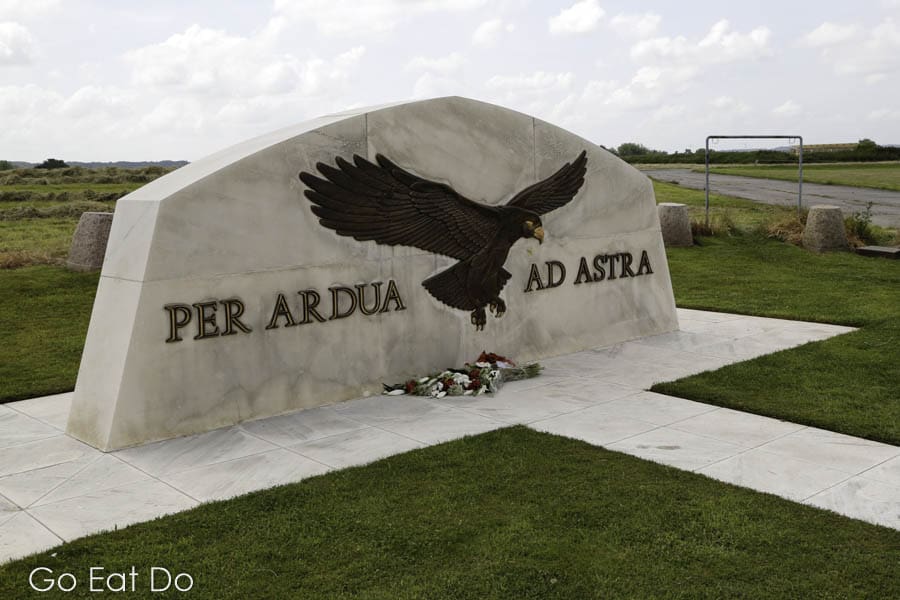
The year in Gard
“Tourism has stopped,” says Gabriele Salom, who works at the office of tourism at Sommières in the department of Gard in southern France. Hotels, guesthouses and campsites are closed. So too are tourism attractions.
“Yesterday [13 April], President Macron said that we will be confined until 11 May, but even after this date the restaurants and hotels will not open…he said also that children will return to school after 11 May, which is hard to believe,” says Gabriele of the situation in France, which has been hit hard by the coronavirus.
“The tourist season is over before starting!” she observes. “The most important festivals, including the Festival d’Avignon and Tour de France, have been cancelled or postponed.”
She is working from home in a region, close to Montpellier, where the direct impact of COVID-19 has been relatively light. That means more time than would be normal in front of a computer screen, participating in video calls.
“We hope that in September, October and November tourists will come back here, thanks to the sun,” says Gabriele enthusiastically.
Like so many people, she is looking forward to spending time with family members and going shopping.
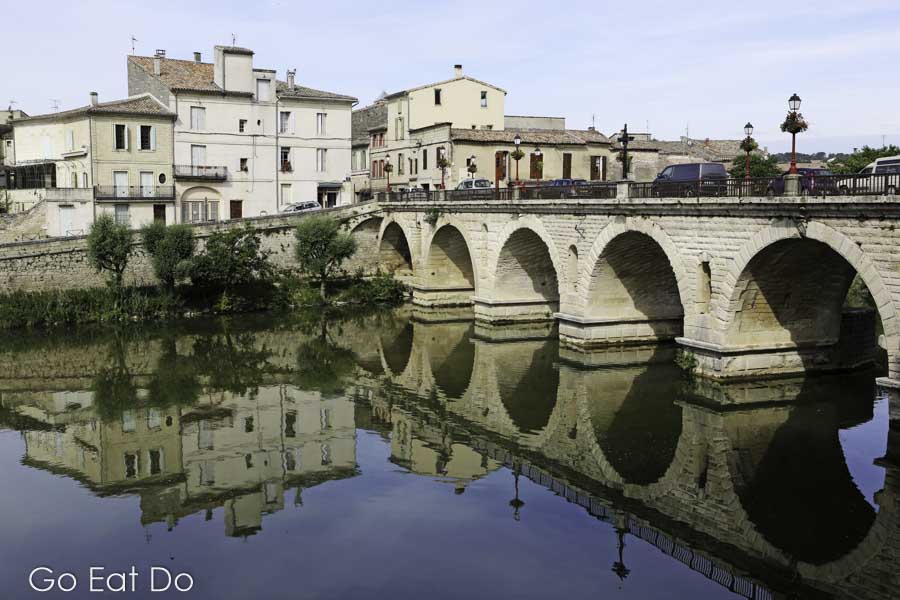
A perspective from Germany
Bart Giepmans lives in Berlin, Germany’s capital, and has the impression that people are taking measures to slow the spread of COVID-19 seriously. “The 1.5 metres social distance is by most people respected. They say stay at home but you can go out for sport and also walk with one person,” he observes.
“Restaurants have closed. You see a development that the economy is changing; a lot of restaurants are developing a takeaway strategy…they are changing to a whole new concept,” he says of recent changes to catering in Berlin.
In Germany, measures to slow the transmission of the coronavirus vary by state. “Even Berlin and Brandenburg are different. Berlin is in the middle of Brandenburg but Brandenburg does not allow picnics in the park or for people to lay down on a bench. In Berlin it is allowed,” says Bart, highlighting differences in neighbouring states. “It can be confusing.”
“For me the toughest thing is using public transport. I’m doing most things walking and by bike now but Berlin is very spread out. My experience of public transport — the U-Bahn, the S-Bahn — is that it was still full and it’s hard to keep the 1.5 metres distance,” he says.
“While shopping I have to admit that I’m a bit scared sometimes. It’s very hard in big cities to stay away 1.5 metres,” comments Bart, who is cooking at home more than previously.
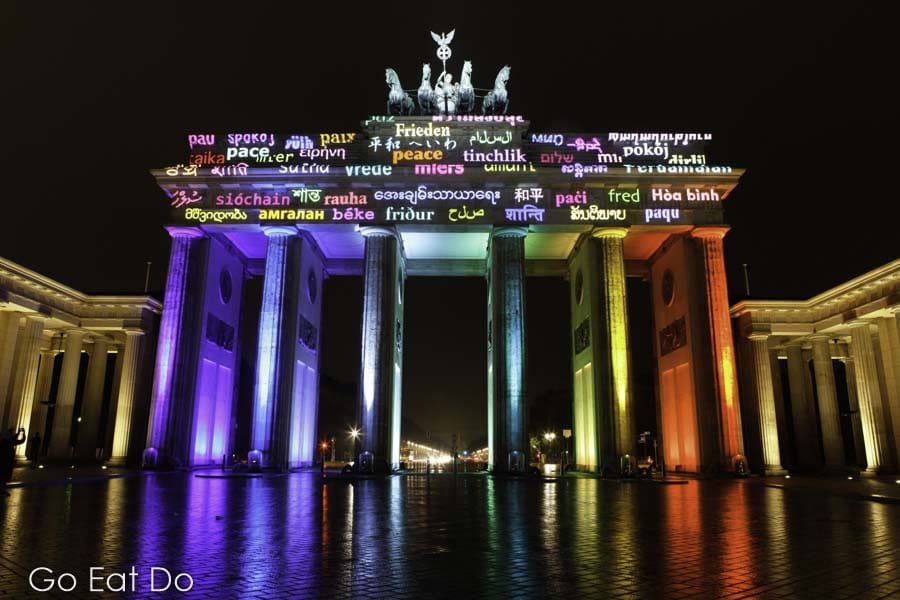
A decline of FOMO?
“I was caught in a rhythm of travel, sport and events. It was FOMO — fear of missing out — in the past year, admittedly, I made progress and could take it or leave it. Now I realise it’s very chilling not to be expected to do things on weekends. You have so much time to be creative, stay around and do local things. Now I’m forced to do it, it’s an unexpected pleasure to be grounded,” says Bart, who has been researching the Battle of Berlin for his blog, Rail Tripping.
“I’m also talking to people more now. But why do we not do that anyway?” says Bart about his increased use of telecommunications.
“There’s more birdsong in the city too. I read in the news that birds react and sing louder because of less noise. I can hear that that,” he observes. “And with less air pollution, I hope for Planet Earth it will do some good.”
He’s looking forward to taking a train into the countryside and walking when the lockdown ends.

Impressions from India
Mathew Thottungal is an experienced photographer and magazine editor based in Mumbai, where over 180 COVID-19 deaths have been recorded.
“The city has been completely locked down since 25 March, for three weeks ending on 14 April 2020. However, due to a sudden spurt in cases, the lockdown has been further extended until 3 May; this is largely due to the high density of the working population,” says Mathew.
His family is in Kerala, and he longs to join them, but that is not possible at present. Public transport is suspended and only members of the emergency services are sanctioned to travel.
“Purchasing supplies — be it vegetables, groceries, milk products — that too is subject to availability between 9.00 am and 11.00 am daily; only two hours per day. Medical supplies are exempted from the lockdown but with restrictions in place nothing is available from the marketplace either way,” he reports.
“Social distancing is a rule but due to paucity of time and materials, people generally do not adhere to these norms. And since they are more voluntary in nature, people generally tend to run about their daily chores rather than observe restrictions,” he adds critically.
India’s rapid implementation of the lockdown resulted in migrant workers being stranded in cities. Lacking work they are frustrated and, increasingly, have been demonstrating against the authorities.
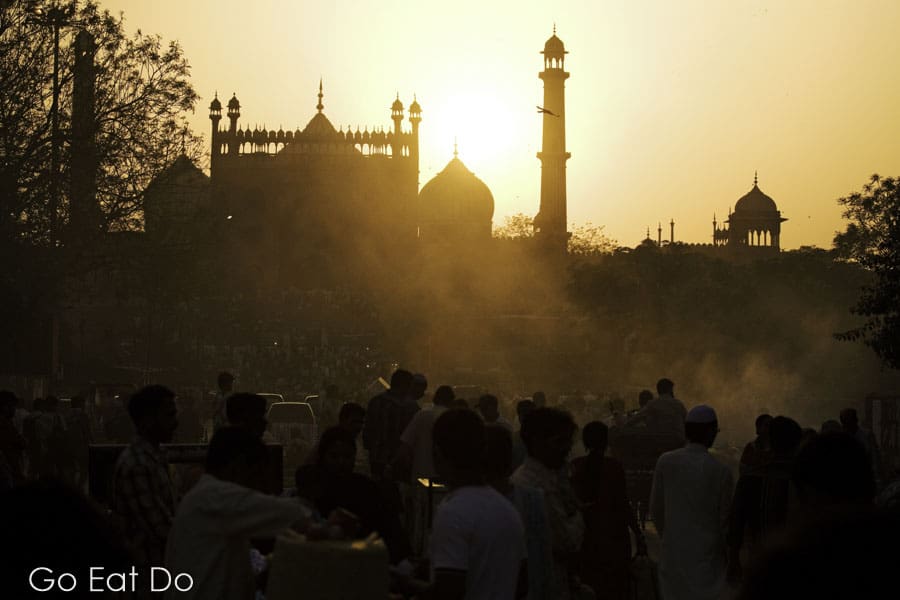
No small change available
“What I am finding toughest at present is the availability of small cash for paying local vegetables, groceries, milk and suchlike. This is because the spread of the pandemic is through touch and contact. Because no proper sanitising processes are followed at ATMs, there is a fear of contracting the pandemic at cash withdrawal centres. In addition, banks are operating with only minimum staff strength. Digital transactions and e-commerce sites are being allowed to transport and deliver supplies, but this is only possible for the reasonably well off while the lesser privileged are struggling to meet their basic requirements, like food, water and other necessities,” says Mathew.
“My heart goes out to these people living out on the margins…It is estimated that many are struggling to survive on a single meal a day which, going forward, seems to be alarming for the authorities to handle,” adds Mathew, who is finding solace online.
“Internet surfing, keeping pace with photographers and checking about their activities on social media sites is a good leveller. Some photographers have come up with daily photo challenge of posting an image and getting others to interact on it,” notes Mathew, who has observed a rise in social media use by some photographers. Some are “sharing their expertise with newbies. This is a welcome addition, and one hopes this trend continues so that photography activity is passed over to the next generation.”
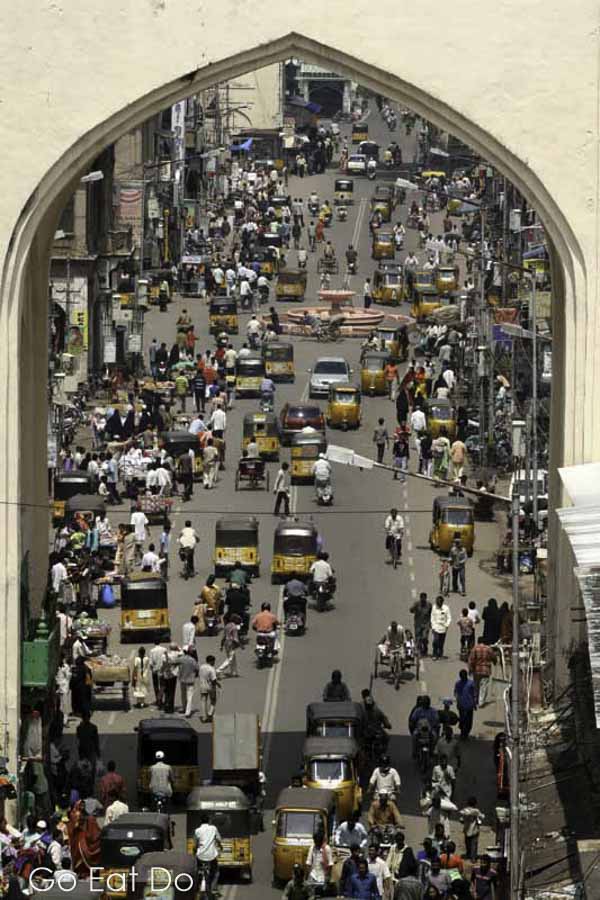
A view from Japan
“At the beginning of March I moved to a home in the suburbs, 30 minutes’ by train from my office at Shinjuku in the centre of Tokyo,” says university professor and travel journalist Setsuko Watanabe, who lives with her husband.
All her seminars and meetings have been cancelled, giving Setsuko time to cook, tend the garden, play the piano, clean the house and read. “It is very good for me; for too many years I worked too much,” she observes.
The local supermarkets are quiet and schools will remain closed until 6 May. Buildings such as gyms, theatres and libraries are also among those that have been closed. News channels are emphasising the importance of hand washing and social distancing.
Setsuko has three adult sons. “My worry is my eldest son, who is a medical doctor working for a Coronavirus-designated hospital. He does not complain at all,” she says.
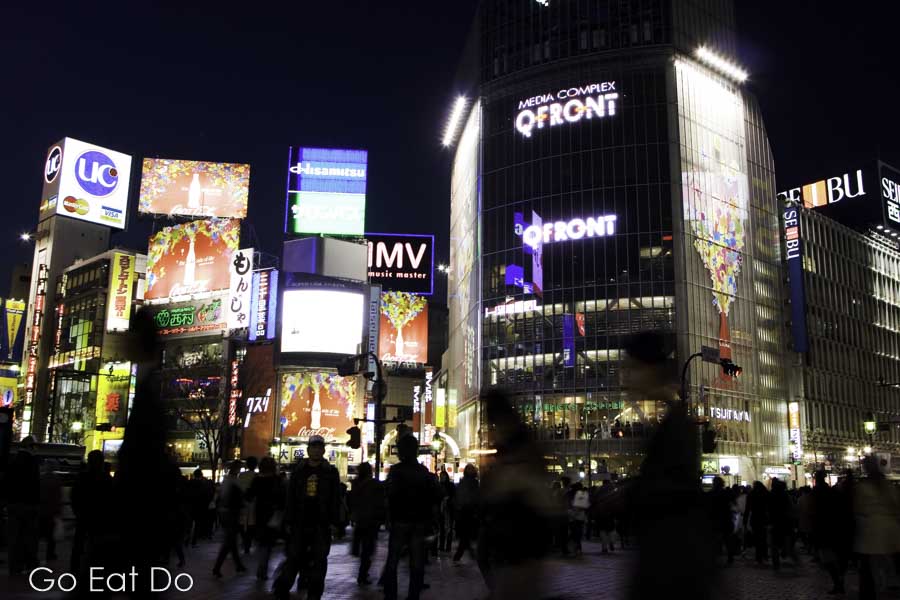
Praise for Boris Johnson
“Japan is a remote island, so people are not aware of what is happening in the world,” says Setsuko, who is aware of the seriousness of the situation in Europe via friends on Facebook. The UK prime minister Boris Johnson’s speech, thanking National Health Service employees after being discharged from hospital, impressed Setsuko as “very eloquent and persuasive”. By contrast, she’s critical of Japan’s leadership and the length of time the Japanese government takes to make decisions regarding issues in the face of the COVID-19 pandemic.
“At present teachers are forced to do online teaching and that is very good…after everything is settled Japan will be changing and do everything online without paper,” predicts Setsuko, who was formerly a systems engineer with IBM and promoted online language learning in the 1990s.
As for the future, when the coronavirus no longer poses a threat, Setsuko says she “will live slowly, enjoying what I really like to do; not much work, even if I’m offered. I will take care of my family.”
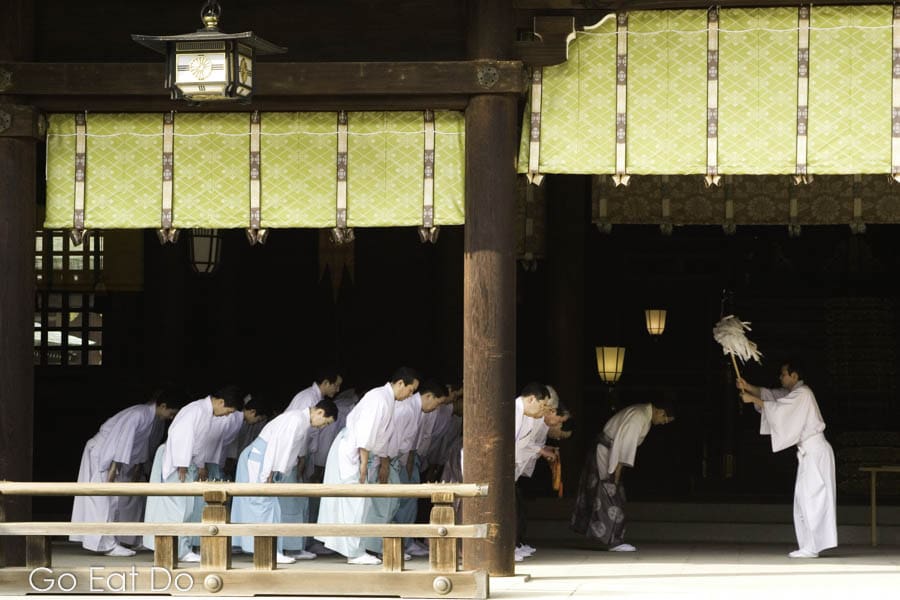
A viewpoint from Zagreb, Croatia
“We started with self-isolation very early. The first infected person appeared on 25 February and the measures soon began. We closed schools, cancelled trips and stopped visiting hospitals and nursing homes. We started working from home,” says Spomenka Saraga, who lives in the capital city of Croatia, a nation with four million inhabitants.
“Fifty days later we have had 1,704 officially confirmed COVID-19 cases,” she says. “I think the results of our system here are very good. Doctors are able to help everyone and are not forced to choose between younger and older patients as happens in Spain or Italy.”
Spomenka believes lessons were learnt from Spain, Italy and China. She sees Croatia’s lockdown as a more successful approach than Sweden’s approach, in which many aspects of life continued largely unchanged.
She explains that gatherings of more than five people are not permitted in Croatia. Staying at home is recommended but people can go for walks. “We cannot go from town to town without special permits and open markets are closed. Shopping centres and all shops are closed — except those with building materials, food items and pharmacies.”
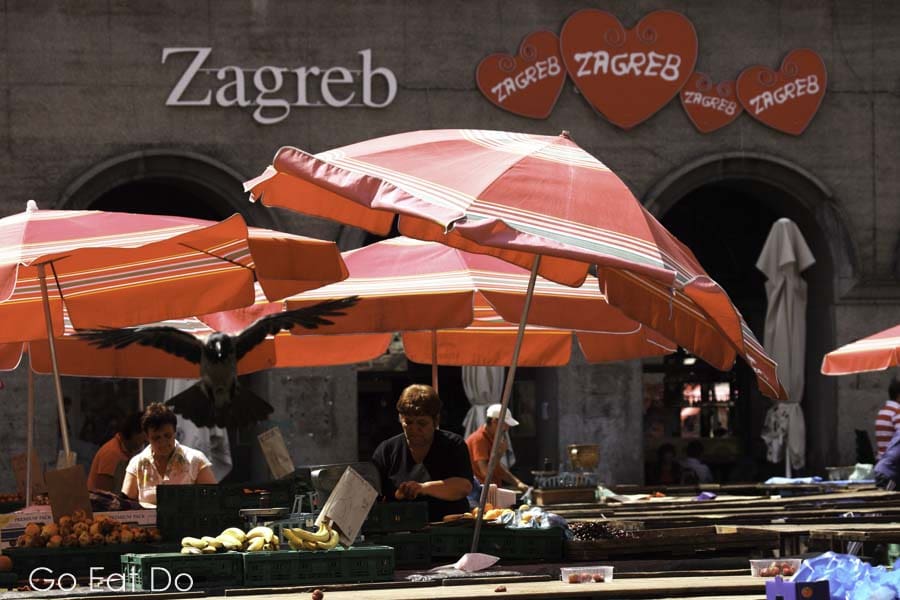
The 2020 Zagreb Earthquake
“An additional problem to our capital city was the earthquake [measuring 5.5 on the Richter scale on 22 March] that damaged the core of the old city. Nearly 25,000 buildings were damaged and some 3,000 people left without homes. The virus may be a happy circumstance in this case, as walking around the city centre now is very dangerous because of falling materials, so the message to stay at home helps prevent more people from getting hurt,” explains Spomenka, who is involved in the production of tourism films.
“All my jobs have been cancelled,” she says of the personal impact of the coronavirus crisis. The outlook is bleak as the impact on the economy means a dearth of investment in tourism.
Yet Spomenka does not believe it’s all bad news at present. “We’ve gone back to the life of 30 years ago, when we spent more time at home, with our family, cooking according to mom’s and grandma’s recipes. Now we can clean up the archives and all that we normally didn’t have time for,” she observes.

Planting for the future
“The positive thing is that people have realised that this year will be a big problem with food, so everyone who has the opportunity has decided to plant their own gardens, tidy up abandoned areas and support domestic production. We saw how bad it was to import everything and how that put us in a bad economic situation. Croatia has the capacity to feed the whole population and still export a lot, which we have abandoned because of tourism’s easier profits. It is much harder to cultivate land than to rent apartments. But when there are no tourists and no income from tourism, apartments cannot feed you,” she says sagely.
Nonetheless, Spomenka is looking forward to travelling again. That includes professional trips and travel with her five-year-old grandson. “He’s growing so fast without me and my attention because I was too busy,” she’s realised because of the coronavirus crisis.
“What I’ve certainly learned is that it’s much better to enjoy spending more time with a family than to work. We need less than what we think we need and what our lifestyle has enticed us to do. Home will be the same a few hundred years from now; you can paint it and everything will be the same, but people change from year to year and are never the same again,” says Spomenka about lessons that so many of us would do well to heed.
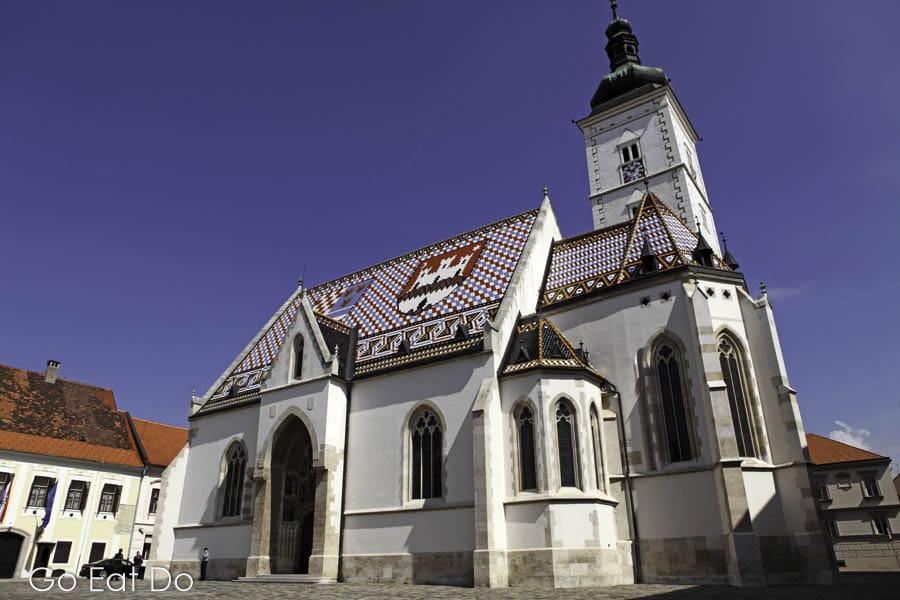
A perspective from the USA
“Basically, all but essential services are shut down. Foodservice is takeout only. Grocery stores open, some with special hours for seniors. There’s very little driving. In our area, folks are doing a very good job of maintaining social distances. Testing is limited but the medical field is telling all to stay at home and self-quarantine if they have symptoms but if breathing and fever are bad to call for medical assistance. We live in a 55+ community of 600+ single-family homes; approximately 1,000 folks. Our community is doing a great job of staying home and social distancing,” says Walt Hess, who lives with his wife Sharon near Sacramento in northern California.
He explains that only essential travel is permitted, that it’s acceptable to leave the house for simple exercise, such as a walk or bike ride, and fine to go to get food or petrol. Group gatherings were initially limited to less than 10 people but are no longer permitted, something that Walt says was initially treated more like a strong recommendation rather than being enforced. Social and recreational facilities have been closed at the community where he lives.
Contact with people is what Walt is missing most during the coronavirus lockdown. Hardest of all, that means seeing his daughter and two grandchildren only via Facetime. It also means no socialising with friends.
“I am a docent at our local zoo and it’s closed. Sharon volunteers at a local grammar school and it is closed. We miss our volunteer activities. I normally play bridge two times a week, but that is cancelled. Sharon participates in quilting and painting groups; also cancelled!” rues Walt.
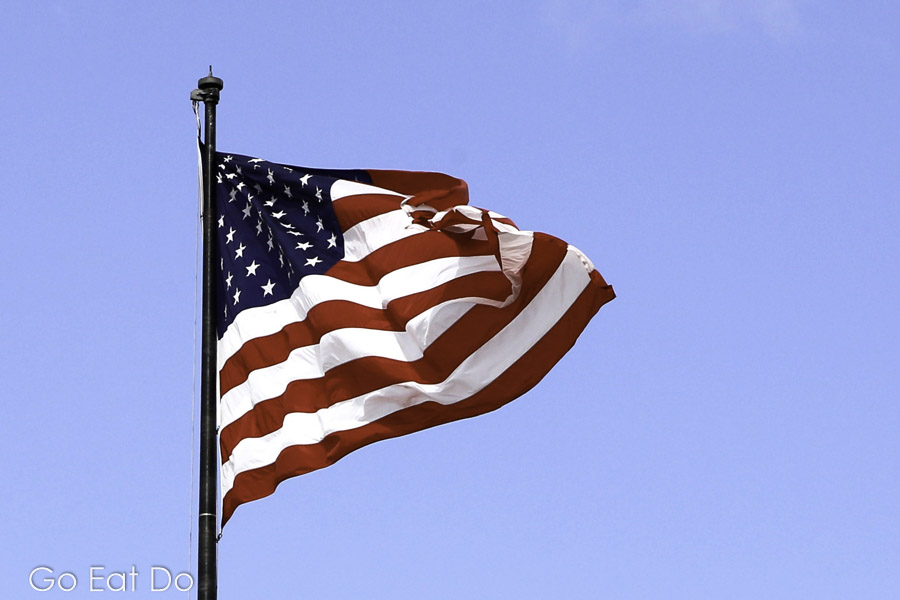
Decluttering and online learning
It’s not all bad news though. Walt is reading a lot more and has been learning about photo editing from webcasts. “We both learned Zoom and used that for some group contacts. Sharon is spending more time painting and quilting. I am using the time to go through the thousands of digital photos, doing clean-ups and editing; it really needed to be done,” he explains.
That’s not the only decluttering Walt and Sharon have done: “We have gone through belongings and clothing to thin out and donate.”
The couple has found that they are not spending as much as normal. “We are not driving, so despite record low gas prices, we are saving money. The same goes for food savings, as we really enjoy eating out and that has pretty much stopped.” They hope their favourite restaurants survive and look forward to revisiting them.
In common with so many people around the world, Walt has a sense of uncertainty regarding future travel plans. “We have a trip to South Africa scheduled for 2021 and hope that can still happen,” he says.
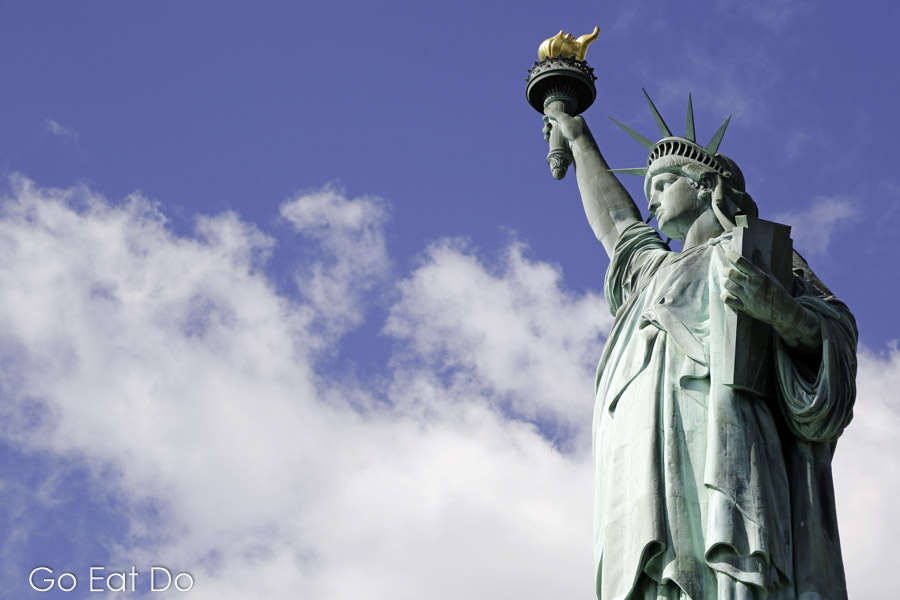
Z is for Zimbabwe
“Victoria Falls is purely a tourist resort town; over 90 per cent of its residents depend on tourist arrivals in one form of the other,” says tour guide Basil Mapfumo.
“The global lockdown has effectively brought the town to a standstill. Most hotels and tour operators closed operations at least a week before the government actually introduced the lockdown regulations…tourist arrivals had dwindled to zero, with mass cancellations of bookings,” explains Basil.
The personal impact to Basil is significant: “The toughest thing is that all my work has been put on hold and so has the income. Surviving is becoming tougher by the day as we do not have any social security net to protect us during the lockdown. People don’t know where their next meal is coming from. The situation is dire and we hope that the lockdown will be lifted as soon as possible. However, this is dependent on the infection rates, which stand officially at 23 cases and 3 deaths.”
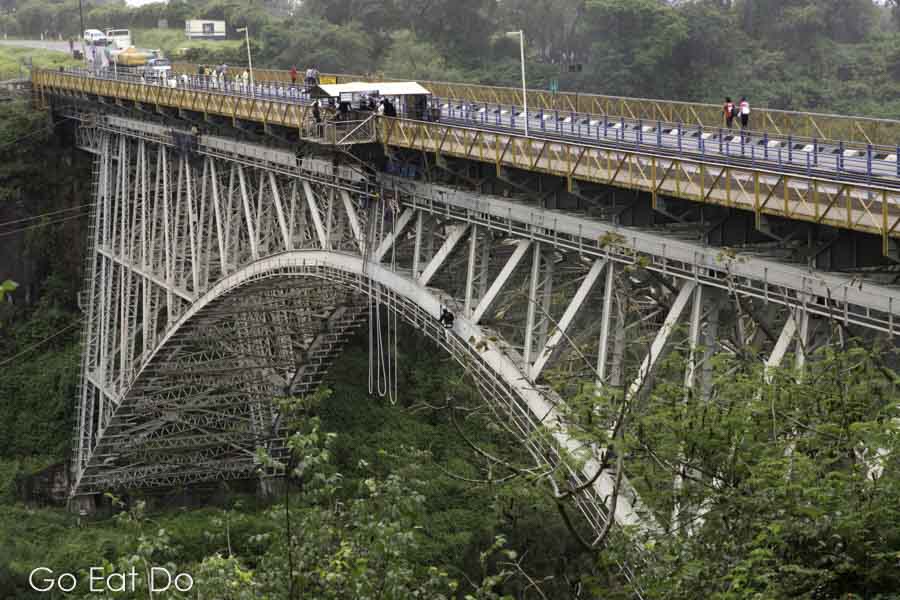
Hardship and entrepreneurship
Entrepreneurially, Basil has been utilising the unexpected downtime to set up an online store for Zimbabweans in the diaspora who want to buy groceries for their relatives back in Zimbabwe.
“I built the website on my own and am currently working on putting together some marketing materials. I’m happy with the progress so far and the only hitch now is raising the working capital, for which I’m looking for a shareholding partner,” he says.
“Only one airline is allowed to operate, that’s Ethiopian Airways, for the purpose of repatriating people back to their countries,” says Basil.
A raft of regulations have been put in place by the Zimbabwean government and will be reviewed after an initial period of 21 days. This includes the closure of non-essential services, limitations on intercity travel and the closure of borders to all except Zimbabweans returning home. Even those people need to undergo 14 days of mandatory quarantine.
“We are all encouraged to stay at home at all times also and avoid visiting friends and relatives,” says Basil, “and jogging on the streets in banned.”
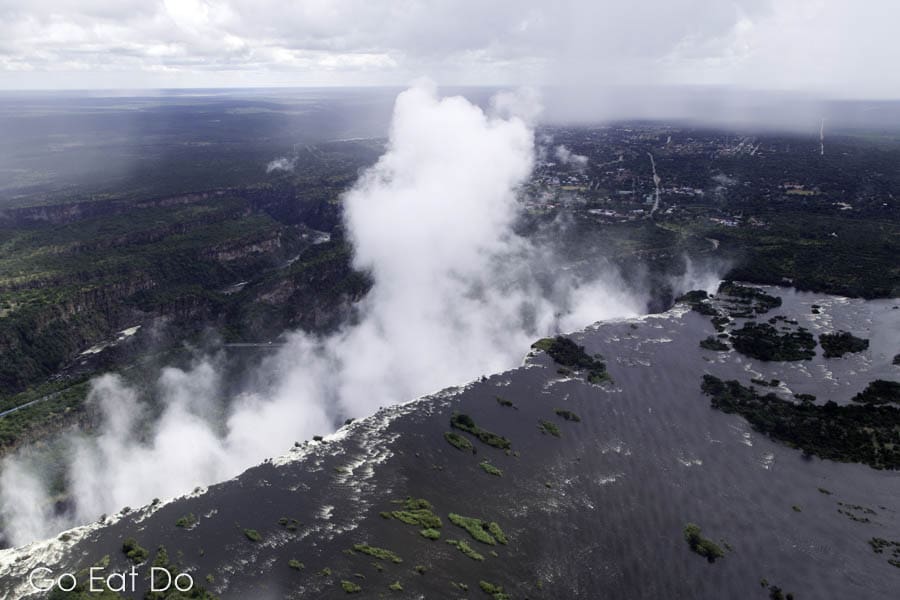
It looks as if the world will be fighting the COVID-19 pandemic for some time.
Further information
NHS Charities Together is accepting donations.
Stuart Forster, the author of this post, is an award-winning travel writer based in northeast England.
Thanks for reading these views on the coronavirus’s global impact. Here’s hoping you and those close to you stay safe and well.
Photos illustrating this post are by Why Eye Photography. All of the photographs were taken prior to the COVID-19 pandemic.
If you enjoyed this post why not sign up for the free Go Eat Do newsletter? It’s a hassle-free way of getting links to posts on a monthly basis.
‘Like’ the Go Eat Do Facebook page to see more photos and content.
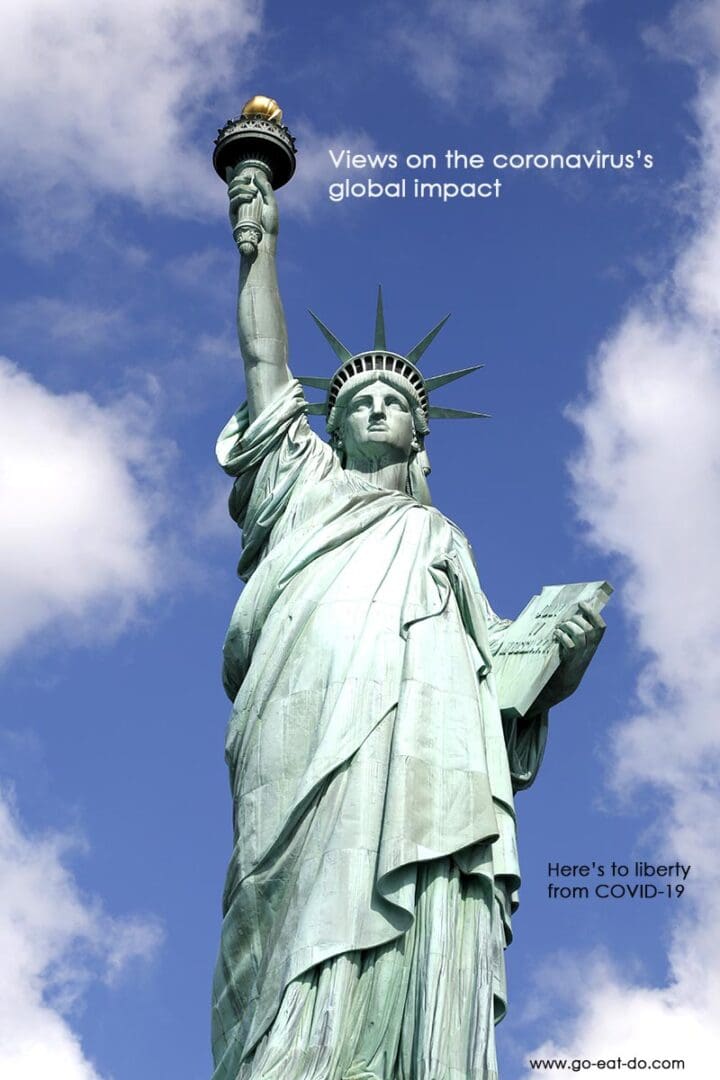




Geoff Moore
April 17, 2020 at 15:02Very good feature Stuart a lot of work too. Well done.
Stuart Forster
April 17, 2020 at 16:05Thank you. I found it insightful to chat with people and to learn that a variety of measures have been implemented around the planet.
Heidi Fuller-Love
April 17, 2020 at 17:43Here in Greece the government has done an exceptional job of dealing with covid 19 but I think it’s also a lot to do with the cohesive nature of Greek society -a very strong sense of group identity which means that if people are convinced this is the right thing to do to save lives and help the country they will do it. Here in my tiny mountain village in Crete everyone stops (at a distance ) to enquire if you are OK and although canceling easter here is like cancelling Xmas in the UK it’s been accepted with mostly good grace. I couldn’t wish to be in a better place during lock down
Stuart Forster
April 20, 2020 at 15:09Thanks for sharing that perspective, Heidi. Here’s to you staying safe.
Basil Mapfumo
April 18, 2020 at 14:17WOW! Now I understand when you said it’s a long article, very well written, makes you realise we are not alone during these harsh times. Brilliant work.
Stuart Forster
April 20, 2020 at 15:11Sometimes stories need to be a bit longer in order to give them the depth they deserve. Thank you so much for taking the time to be interviewed.
Emily
April 27, 2020 at 12:24This is such an interesting snapshot of the world at this precise moment and I think it will be really important to look back on in years to come. Thanks for writing!
Go Eat Do
April 27, 2020 at 09:30Thanks for stopping by to take a look, Emily.
the Curious Pixie
May 5, 2020 at 15:17A great insight into a time which will be talked about in history.
Go Eat Do
May 5, 2020 at 18:25Thanks for taking the time to read the post, Sima.